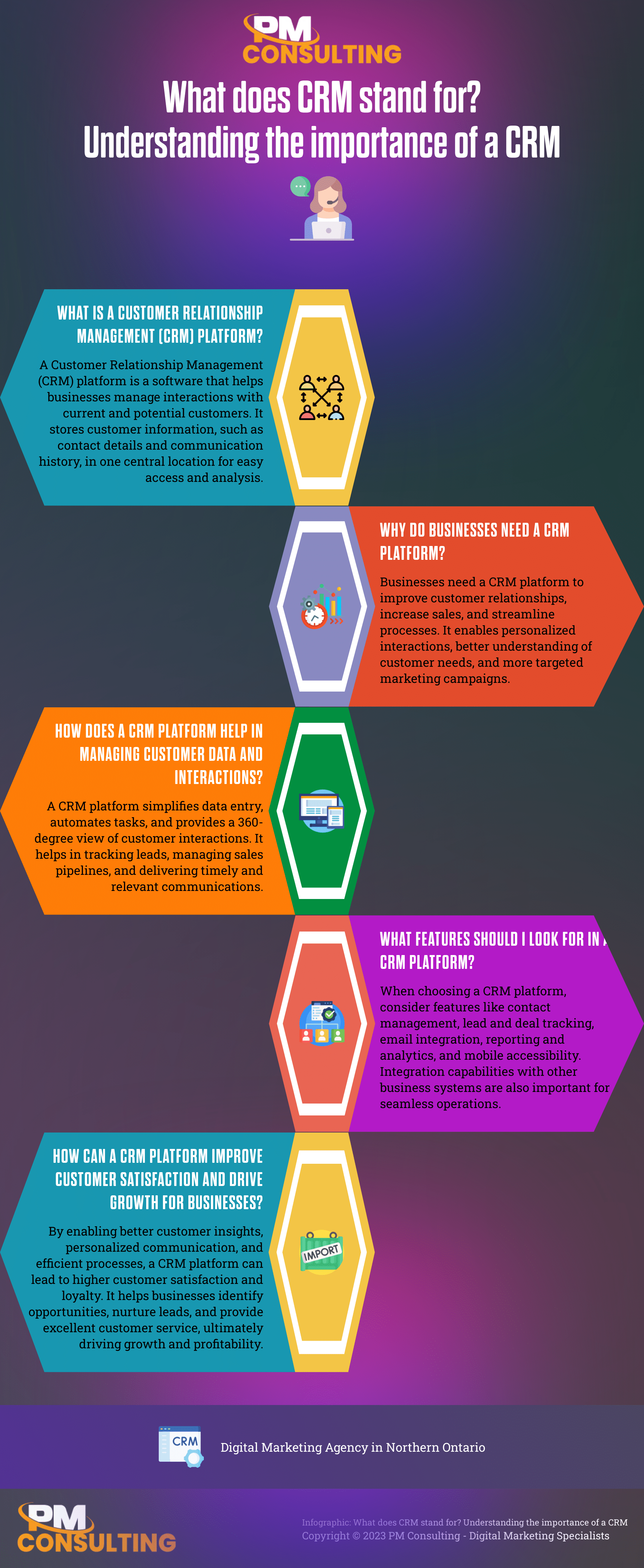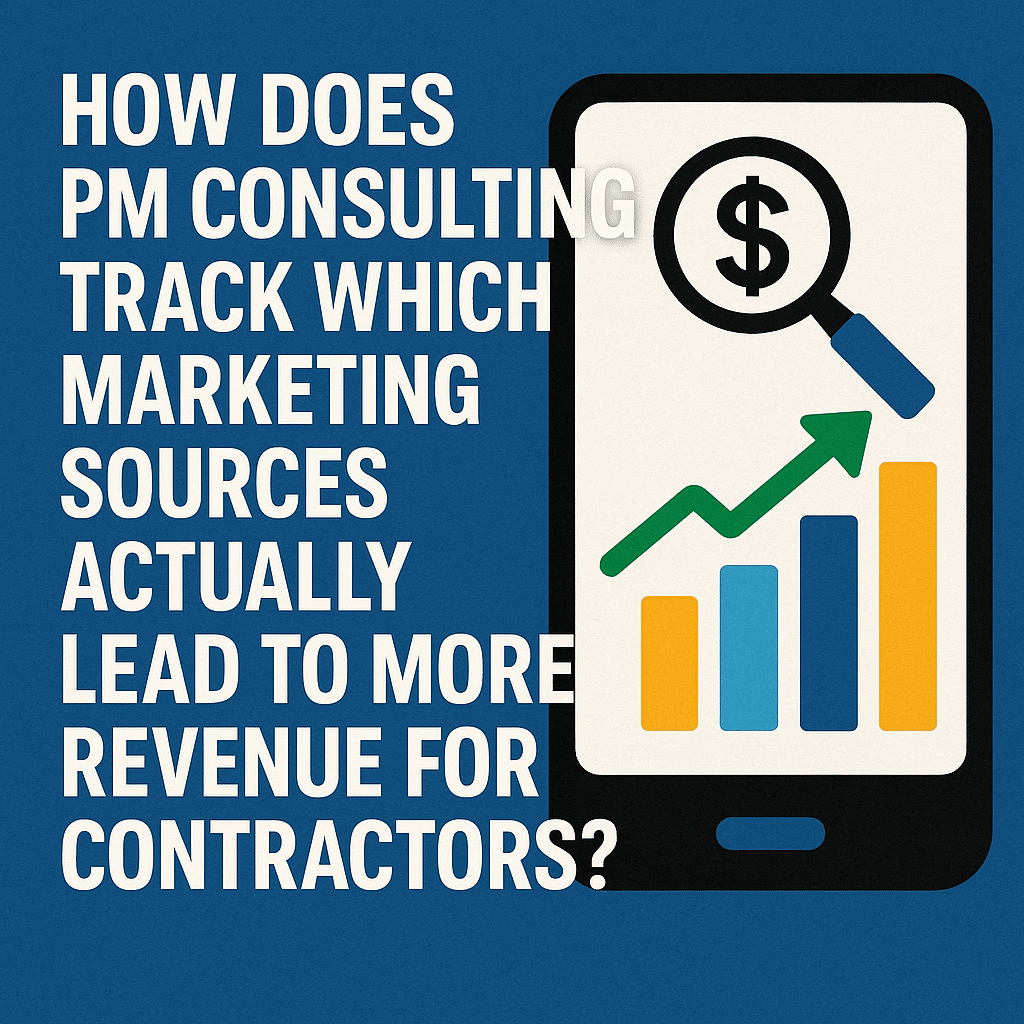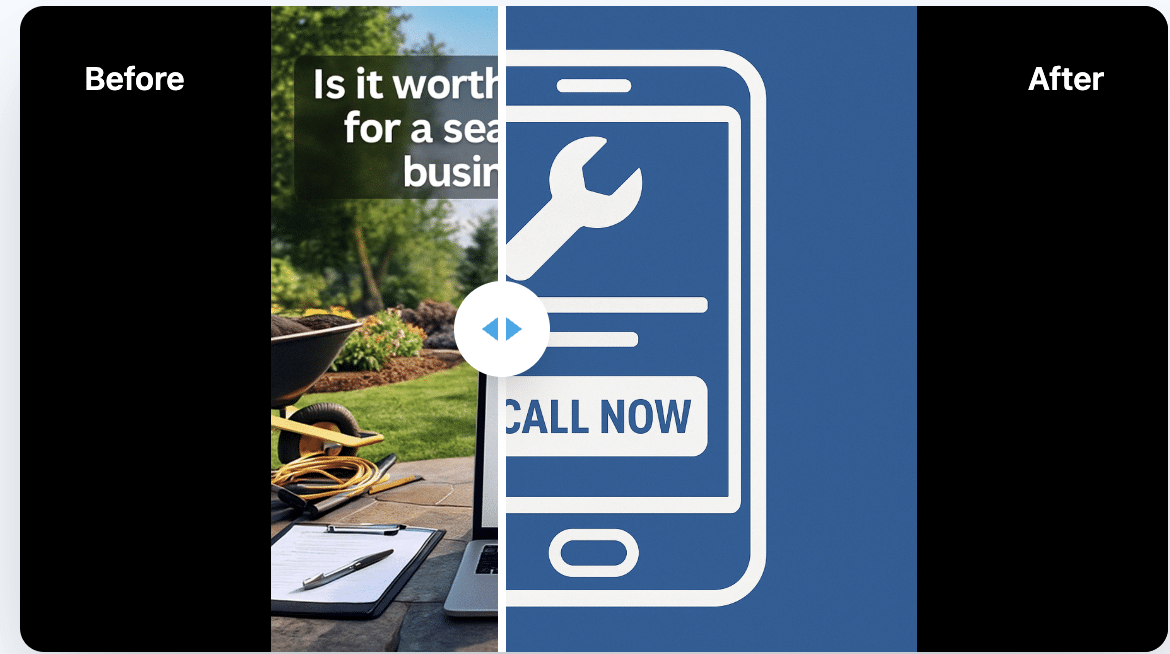Understanding CRM: What Does Customer Relationship Management Stand For?
What does CRM stand for? At the heart of every thriving business lies the pulse of customer relationship management, or CRM.
It’s often seen as the binding force that aligns marketing strategies, customer service, and sales efforts in a seamless synergy.
By leveraging CRM platforms, a business can deepen its engagement with its customers—understanding their needs, preferences, and behaviors in rich detail.
This, in turn, propels a tailored approach to client interactions and optimizes the overall sales process.
Keep reading to discover how the finesse of CRM can redefine the landscape of your enterprise and bolster your bottom line.

Key Takeaways
- CRM Systems Are More Than Mere Technology—they Are Strategic Tools for Enhancing Customer Relationships and Service
- Operational, Analytical, and Collaborative CRM Systems Each Offer Unique Benefits Tailored to Specific Business Needs
- Industry-Specific CRM Applications Can Provide Customized Features That Address Unique Sector Challenges
- Key Performance Indicators Like Customer Retention and Conversion Rates Are Essential to Assess the Effectiveness of CRM Implementation
- Continuous Improvement Through Customer Feedback Is Vital for Refining CRM Strategies and Strengthening Customer Engagement
Exploring the Core Definition of CRM

As we unpack the essence of Customer Relationship Management (CRM), it’s vital to acknowledge this isn’t merely another buzzword in the business lexicon.
The backbone of any thriving business isn’t just its products or services—it’s the nuanced interaction with customers that establishes longevity and growth.
CRM stands as the scaffolding that supports these interactions, embodying the strategies, technologies, and processes geared towards strengthening connections with clients.
It’s more than a software solution; it’s a holistic approach that intertwines the heart of customer engagement with the science of data management and analysis.
With that in mind, let’s delve deeper into the anatomy of CRM, exploring its role in cultivating positive client relations, elevating it from mere background technology to an indispensable ally in the arena of business success.

Breaking Down the Acronym: What CRM Means
When we refer to CRM, we’re encapsulating the term “Customer Relationship Management,” a phrase that signifies so much more than its surface connotation. It represents a comprehensive crm strategy that integrates all facets of interaction a company has with its customers, from sales pipeline to support services.
Demystifying CRM further, it acts as a crm platform allowing businesses to track and optimize every customer interaction and manage customer information all in one place. This empowers a more personalized approach to customer service that is proactive and responsive, enhancing the overall customer journey.
Clarifying the Concept of Relationship Management
Relationship management transcends the conventional customer service boundaries. It’s a continuous process that polishes every facet of customer interaction, ensuring that each touchpoint is not just a transaction but a step towards a loyal relationship.
My perspective on relationship management allows me to see it as the art of understanding and responding to customer needs through a synergistic use of CRM technology. It’s about shaping the customer experience in a way that each interaction resonates with their expectations, reinforcing trust and loyalty.
Distinguishing CRM From Other Management Tools
Stepping into the realm of CRM, it becomes imperative to distinguish these systems from other management tools that saturate the market. CRM solutions uniquely focus on the customer lifecycle, rendering them distinct from project management or business process tools that might prioritize internal workflow and resource allocation without centering around customer interaction.
What sets CRM platforms apart is the depth with which they delve into the customer profile, designed to foster a comprehensive understanding of customer data across every contact point. Unlike a basic contact management tool or a spreadsheet, CRM software is a layered, dynamic sales CRM, intricately weaving customer engagement with sales leads, pipeline management, and campaign analysis to support the sales team in a multifaceted manner.
The Main Objectives of CRM Explained

Peering into the heart of CRM objectives casts a spotlight on the enduring quest of providing seamless and enriching customer interactions.
The aim is to revolutionize the way businesses support and engage with their clientele, implementing CRM as both shield and sword in the battle for customer satisfaction.
As I examine the pillars that uphold customer relationship management, three core topics emerge—enhancing customer interaction and support, streamlining communication channels through CRM technology, and leveraging CRM as a pivotal asset in customer retention strategies.
These objectives are not mere end goals but stepping stones in crafting a superior, enduring customer journey—a journey that respects the individuality of each customer and forges a path to unwavering loyalty.
Enhancing Customer Interaction and Support
Empowering teams with the right CRM tool can revolutionize the caliber of customer service we deliver. It equips us with the insights to anticipate client needs, respond with agility, and personalize our interactions to foster a sense of value and appreciation in their journey with our business.
Enlisting a robust CRM solution equates to enhancing direct contact with those we serve. It ensures that each conversation, email, or support ticket is anchored in a comprehensive understanding of the customer’s history, preferences, and feedback, enriching the dialogue and paving the way for a genuinely supportive and effective relationship.
Streamlining Communication Channels With CRM
Streamlining communication channels through CRM is about turning a tangled web of interactions into a sleek, well-ordered system. A CRM platform transforms the way we share information internally and connect with our customers, ensuring our messages are timely and resonant. This alignment forms a bridge between the various departments, all the while maintaining the customer as the focus of our conversation.
Harnessing the full potential of CRM technology, we optimise every aspect of communication, breathing efficiency into our daily operations. The CRM solution dismantles barriers that could disrupt the flow of information, ensuring that every email address, phone call, and update contributes to a coherent narrative of customer engagement, fostering a synergy that champions clarity and connection.
The Role of CRM in Customer Retention Strategies
Stepping into the retention arena, CRM emerges as a linchpin in cultivating enduring customer loyalty. It’s a strategic powerhouse that enables us to chart customer trends, predict churn risks, and deploy retention campaigns tailored to individual customer needs and behaviors.
Through the meticulous application of CRM analytics, I’ve learned that this tool isn’t just about curating historical data—it’s about leveraging that wealth of customer information to fine-tune engagement strategies that resonate on a personal level, thus bolstering the affinity a customer feels towards our brand.
How CRM Technologies Evolve Businesses

In the dynamic dance of business evolution, Customer Relationship Management (CRM) has become a transformative melody that businesses of various scales tune into for orchestrating growth and reinforcing customer connections.
Moving beyond the rudimentary confines of spreadsheets, sophisticated CRM software emerges as a pivotal player, redefining not only the way companies interact with customers but also reshaping the internal skeleton of business processes and workflows.
As we venture through this exploration of CRM’s profound impact, we’ll unveil compelling case studies that bear testament to the successful integration and outcomes of CRM technology, shining a light on the tangible benefits that compel businesses to adopt this customer-centric approach.
From Spreadsheets to Sophisticated CRM Software
Transitioning from spreadsheets to sophisticated CRM software marks a significant leap for any business. What once were static columns of customer data evolve into dynamic, interactive sales workflows embedded within cutting-edge CRM platforms, fostering real-time insights and swift action from sales teams.
This evolution reflects a commitment to the customer’s needs—CRM technology elevates data into accessible business intelligence that turbocharges the sales process, sharpens the sales funnel, and cultivates a deeper customer profile, all geared toward enhancing the customer experience.
The Impact of CRM on Business Processes and Workflow
As I integrate CRM software within my operational framework, it becomes clear how deeply this technology influences business processes and workflow. Gone are the days of disjointed customer records and an overwhelming flood of data entry—CRM streamlines these into a cohesive, automated system, enhancing productivity and paving the way for more strategic decision-making.
Implementing a CRM solution effectively restructures the sales cycle, aligning the sales team with a clear view of deal stages and customer engagement. It nurtures a more informed, efficient approach to sales activity, which translates into a refined business process that significantly boosts the bottom line.
Case Studies: Successful CRM Integration and Outcomes
Delving into real-world scenarios solidifies my understanding of CRM’s transformative power. One prominent case study involves a high-profile retail company that integrated a sophisticated CRM platform to refine its customer experience, which resulted in a marked increase in repeat business and a significant reduction in service response times, clearly indicating CRM’s pivotal role in achieving a sustainable competitive advantage.
Another example that stands out to me is a B2B service provider that employed CRM technology to restructure its sales workflows. This strategic move allowed for a more transparent view of sales pipelines, leading to a 20% uptick in productivity and an impressive growth in deal closures, demonstrating that effective CRM integration can indeed turn potential into profit.
The Various Types of CRM Solutions Unveiled

Embarking on the journey of customer relationship management, it’s critical to discern the assortment of CRM solutions available and their unique contributions to a business’s success.
Equipped with a keen understanding of the diverse CRM systems such as operational, analytical, and collaborative, I’m poised to guide business owners through the intricate tapestry of choosing the perfect CRM fit.
The landscape spans industry-specific applications with tailored features, to the pivotal decision between open-source and proprietary models.
This selection not only underpins a company’s strategic alignment with CRM technology but also underscores its commitment to refining customer interaction and data management with precision.
As I lay the groundwork for exploring these varied CRM solutions, the focus remains steadfast on selecting the one that best aligns with a company’s ethos, operational needs, and the pursuit of excellence in customer engagement.
Operational, Analytical, and Collaborative CRM Systems
Navigating the terrain of CRM solutions, I often highlight the distinct advantages of operational, analytical, and collaborative CRM systems. An operational CRM streamlines daily tasks, targeting improved customer service, marketing efficiency, and sales due to its focus on direct customer interaction.
Conversely, analytical CRMs are my go-to when emphasizing the strategic assessment of customer data. They foster an informed understanding of customer behavior and business performance, which is critical for concocting data-driven strategies. Collaborative CRMs stand out in their ability to unite departments with shared customer information, enhancing the cohesiveness of customer interactions across different touchpoints.
Industry-Specific CRM Applications and Their Features
In my explorations with various clients, I’ve come to realize that industry-specific CRM applications are a game-changer for businesses tailored to specific market sectors. They come packed with features that cater directly to the unique challenges and opportunities within industries such as real estate, healthcare, or financial services, allowing companies to handle their distinctive workflow with precision and finesse.
Take for example, a CRM tool designed for the healthcare sector, which may integrate features for managing patient records, appointment scheduling, and compliance with healthcare regulations, offering healthcare professionals a seamless way to maintain sensitive patient information and enhance patient engagement. Alternatively, a CRM for the retail industry might emphasize inventory control, consumer behavior tracking, and sales forecasting to optimize the retail sales cycle. The specificity of these applications ensures the CRM aligns with industry needs and elevates the effectiveness of each customer interaction.
Open-Source vs Proprietary CRM: Making the Right Choice
In my experience, selecting between open-source and proprietary CRM platforms can have profound implications for a business’s operational dynamics and overall budget. Open-source CRMs offer a customizable foundation that thrives on community support and collaboration, appealing to those with the technical know-how to tweak the system to their specific needs without being confined by licensing fees or vendor lock-ins.
On the flip side, proprietary CRM systems deliver out-of-the-box ease, reliability, and ongoing vendor support, which I find can alleviate much of the stress associated with system maintenance and updates for business owners. This convenience often comes with a cost, both in financial terms and in decreased flexibility, making it a substantial commitment that should align with the company’s long-term customer relationship strategy.
Practical Uses of CRM in Different Industries

Customer Relationship Management, or CRM, is central to cultivating rich connections with clients across diverse industry landscapes.
Whether it’s the fast-paced retail sector, the data-sensitive realms of healthcare and finance, or the varied dynamics between B2B and B2C models, a bespoke CRM approach can be transformative.
It’s through this adaptive lens of CRM customization and application that companies can refine their customer service, offering personalized case management and a strategic edge.
As we venture through the diverse utilizations of CRM, we will navigate tailor-made practices that resonate with multi-industry demands, elevating customer service to exceptional standards with judiciously chosen CRM interventions.
Tailoring CRM for Retail, Healthcare, and Finance Sectors
In the bustling heart of the retail sector, a customized CRM becomes an indispensable engine for growth, driving sales through personalized marketing campaigns and a fortified customer experience that turns one-time shoppers into repeat visitors. My expertise confirms that the right CRM solution aligns perfectly with the pulse of retail dynamics, merging inventory insights with consumer preferences to offer unbeatable, responsive service.
Delving into healthcare and finance, the role of CRM pivots towards meticulous sensitivity with customer data, and compliance with stringent regulations. Here, I’ve witnessed a CRM’s capability to manage patient histories or client financial portfolios with utmost precision, ensuring that personal touchpoints are not only secure but are also coupled with insights that fortify trust and streamline complex yet crucial service deliveries.
CRM Best Practices for B2B and B2C Business Models
In the B2B realm, CRM best practices revolve around nurturing long-term partnerships and the intricate sales cycles characteristic of this model. My focus is on employing robust CRM solutions to manage intricate sales pipelines and facilitate deep insights into business buyer behavior, ensuring that every interaction is tailored to foster a strategic, mutually beneficial business relationship.
For B2C companies, the CRM approach I advocate for places a premium on swift, high-volume interactions optimized for individual consumer satisfaction. Utilizing CRM technology, I concentrate on crafting seamless customer journeys, rapidly responding to customer feedback, and personalizing the shopping experience to bolster customer loyalty and purchase frequency.
Enhancing Customer Service With CRM Case Management
In my professional experience, CRM case management has been instrumental in propelling customer service to new heights. By implementing a CRM approach, customer support teams are able to track and resolve customer inquiries and issues more efficiently, ensuring that no customer feels neglected or slips through the cracks.
For me, CRM case management is the glue that binds together all aspects of a customer query, from the initial interaction to the final resolution. This integration of customer interactions across various channels allows for a frictionless experience, where solutions are reached faster and customer satisfaction remains a priority.
Measuring the Success of CRM Implementation

In my career as a strategist, the true merit of any CRM deployment can only be gauged through its tangible outcomes on business success.
Implementing a Customer Relationship Management system is an ambitious undertaking, but its value lies dormant without the right metrics to assess its impact.
The palpable success of a CRM strategy isn’t just found in immediate improvements but is often deeply interwoven with a company’s operational fabric.
Setting our sights on the right Key Performance Indicators (KPIs), we open a window to unfiltered views of CRM effectiveness.
It’s also in the genuine responses from our clientele where we derive insights prompting pivotal CRM adjustments.
As we commit to this metric-driven and feedback-focused methodology, the horizon broadens to reveal the long-term benefits of CRM that solidify not just fleeting transactions but enduring business relationships.
Key Performance Indicators to Track CRM Effectiveness
In my journey as a business consultant, I have learned that one of the pivotal KPIs to gauge the success of CRM implementation is customer retention rate. This metric acts as a clear indicator of how effectively the CRM system is fostering customer loyalty and satisfaction by streamlining interactions and enhancing service quality.
Another indispensable KPI that sheds light on CRM effectiveness is the conversion rate from our sales efforts. Observing how the CRM tool aids in turning prospects into paying customers offers actionable insights into the efficacy of our sales strategies and how well we are personalizing the buyer’s journey.
Customer Feedback and Its Role in CRM Adjustment
My approach to integrating customer feedback within CRM systems is predicated on the belief that each piece of feedback is a valuable catalyst for continuous improvement. It is the lifeblood that informs and refines the customer journey, ensuring that my CRM adjustments are not based on assumptions but on real, customer-derived insights.
Paying close attention to customer feedback allows me to pinpoint areas within the CRM that can be enhanced, such as automating follow-ups or personalizing communication. This process is a cornerstone of my strategy, with customer feedback shaping the CRM platform into a more effective tool for fostering stronger customer relationships and driving business growth.
Long-Term Benefits of a Well-Executed CRM Strategy
A well-executed CRM strategy offers a treasure trove of long-term benefits, chief among them the continuity it brings to business growth. Its systematic approach in managing customer relationships nurtures a stable and expanding customer base, essential for long-term success and resilience Against market volatility.
Integrating a CRM system demonstrates a commitment to innovation and adaptability, two hallmarks of a future-proof business. Over time, this strategic stance positions the company a step ahead, with in-depth understanding and anticipation of customer needs, harmoniously aligning with the evolving landscape of customer expectation and engagement.
Frequently Asked Questions
What does CRM stand for, and how does it relate to customer relationship management?
CRM stands for Customer Relationship Management, encompassing strategies, practices, and technologies a business employs to manage and analyze customer interactions throughout their lifecycle. It serves as the backbone for a business’s efforts to foster customer engagement, improve business relationships and drive growth by systematically organizing customer information, sales leads, and streamlining various sales processes.
What are the main goals and objectives of implementing a CRM strategy in business?
The primary goals of implementing a CRM strategy are to optimize customer interactions and bolster the overall customer experience. A CRM solution empowers businesses to manage customer information efficiently, streamline the sales process, and enhance customer service, which in turn drives sales and fosters loyalty.
How do CRM technologies play a crucial role in the evolution of businesses?
CRM technologies have revolutionized the way companies interact with customers, upgrading everything from the sales process and customer data handling to the overall customer experience. By providing tools that enhance customer relationship management, businesses can maintain stronger connections and drive growth more efficiently.
What are the different types of CRM solutions available and how do they vary?
CRM solutions come in various forms, catering to diverse business needs—there’s operational, analytical, collaborative, and strategic CRM, each focusing on a unique aspect of customer relations. While operational CRMs streamline daily customer interactions and sales processes, analytical systems delve deep into customer data and business intelligence to drive decision-making; collaborative platforms focus on unifying communication across various departments, and strategic CRMs guide the overall customer relationship strategy to enhance long-term customer engagement.
Can you provide examples of practical uses of CRM in various industries and sectors?
In the bustling realm of retail, a CRM tool transforms customer data into personalized marketing campaigns, ensuring repeat business by tailoring the shopping experience to individual needs. Over in the fast-paced world of technology services, CRM software becomes a beacon of efficiency, capturing every customer interaction to craft a meticulous customer journey, drastically enhancing the accuracy of support while driving sales pipeline velocity.
Conclusion
Customer Relationship Management (CRM) stands as a fundamental pillar in the realm of modern business success, going beyond mere software to become an essential strategy for cultivating deep, enduring connections with clients. Don’t forget to add Local Citations to your ongoing SEO efforts.
At its core, CRM combines technology, processes, and strategies to manage all aspects of a company’s interactions with its customers.
Recognizing the crucial role of effective CRM systems, businesses can optimize customer interactions, streamline communication channels, and implement robust customer retention strategies.
From improving customer service and support to enhancing internal business processes and workflow, CRM technologies are revolutionizing the way companies operate and interact with their customer base.
By adopting industry-specific CRM applications and choosing between open-source or proprietary platforms, businesses can tailor their CRM approach to meet unique industry needs and consumer expectations.
Moreover, CRM’s adaptability across various industries, from retail to healthcare and finance, showcases its versatility in enhancing customer service and fostering customer loyalty.
A successful CRM implementation, measured by KPIs and customer feedback, promises not just short-term gains but long-term benefits, ensuring business growth, customer satisfaction, and a resilient competitive edge in the ever-evolving market landscape.























